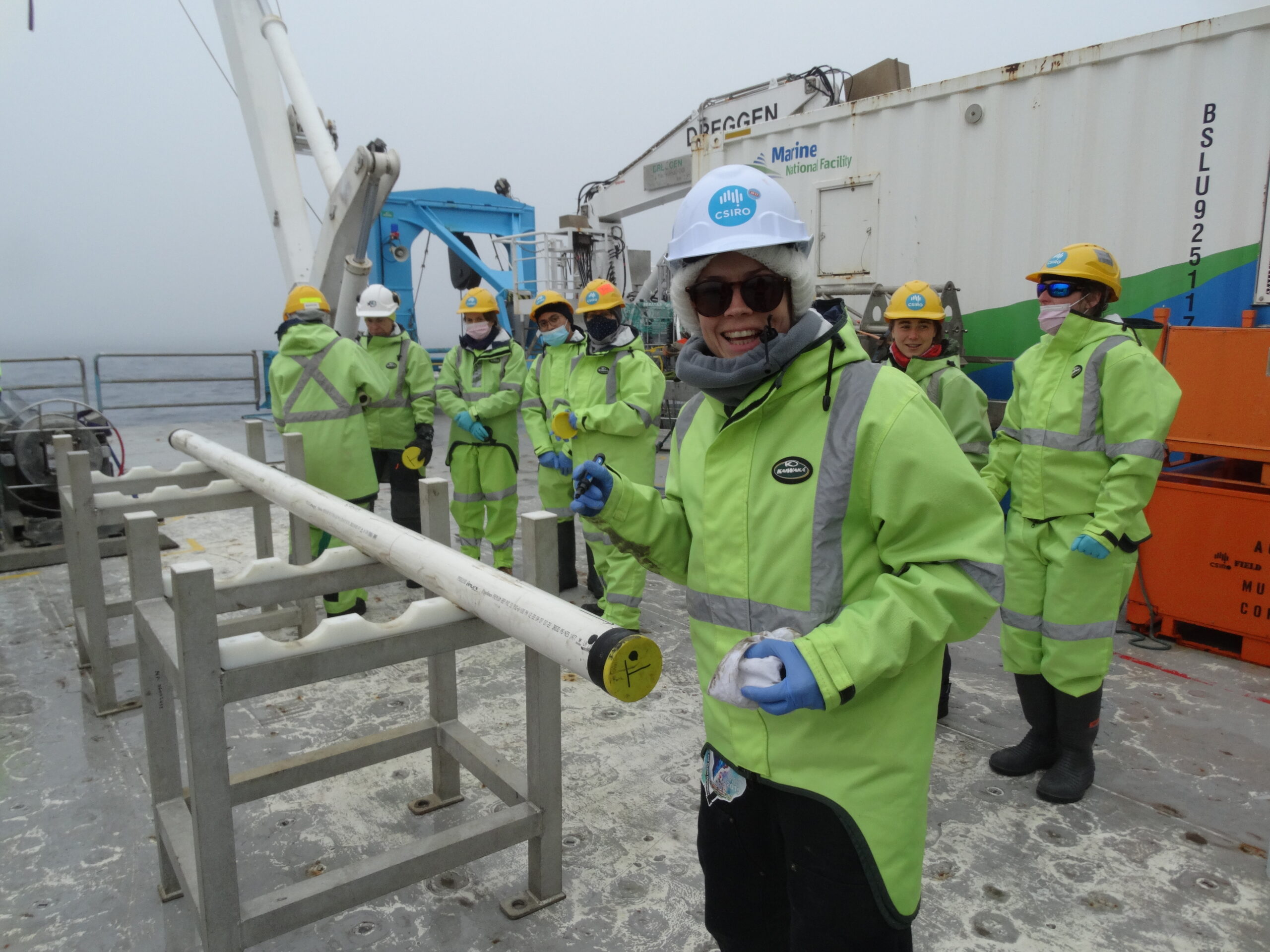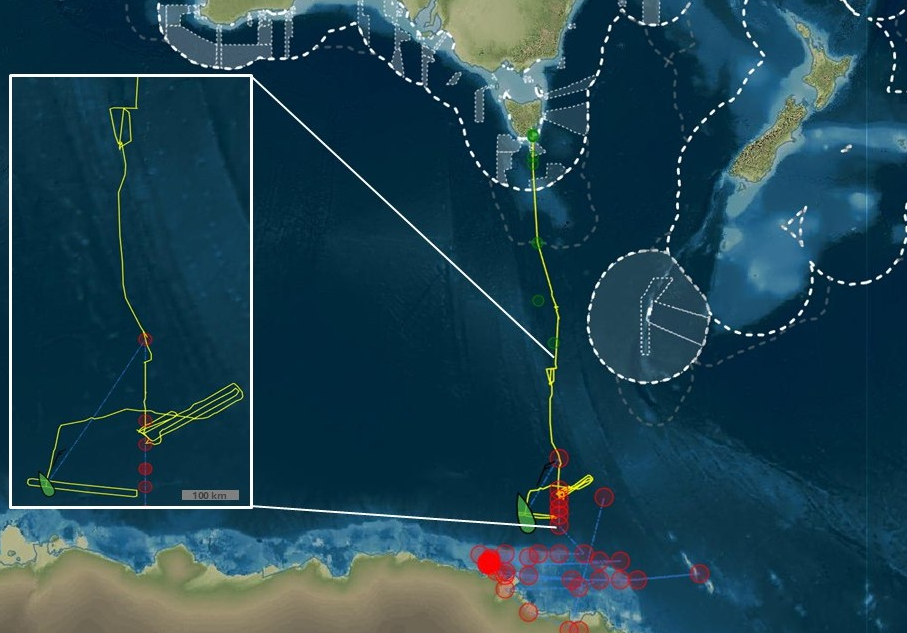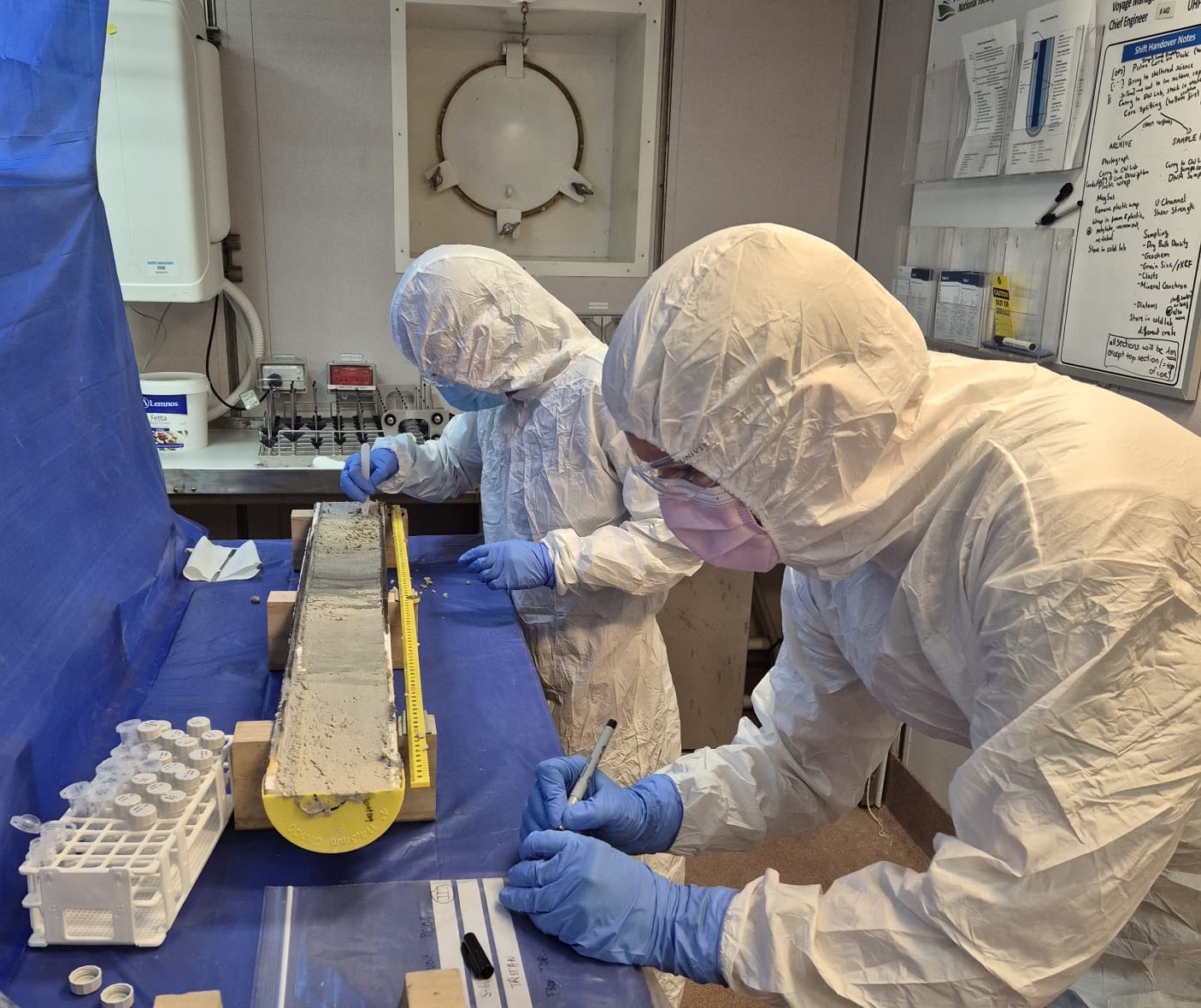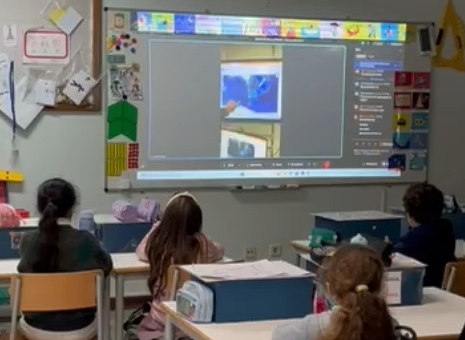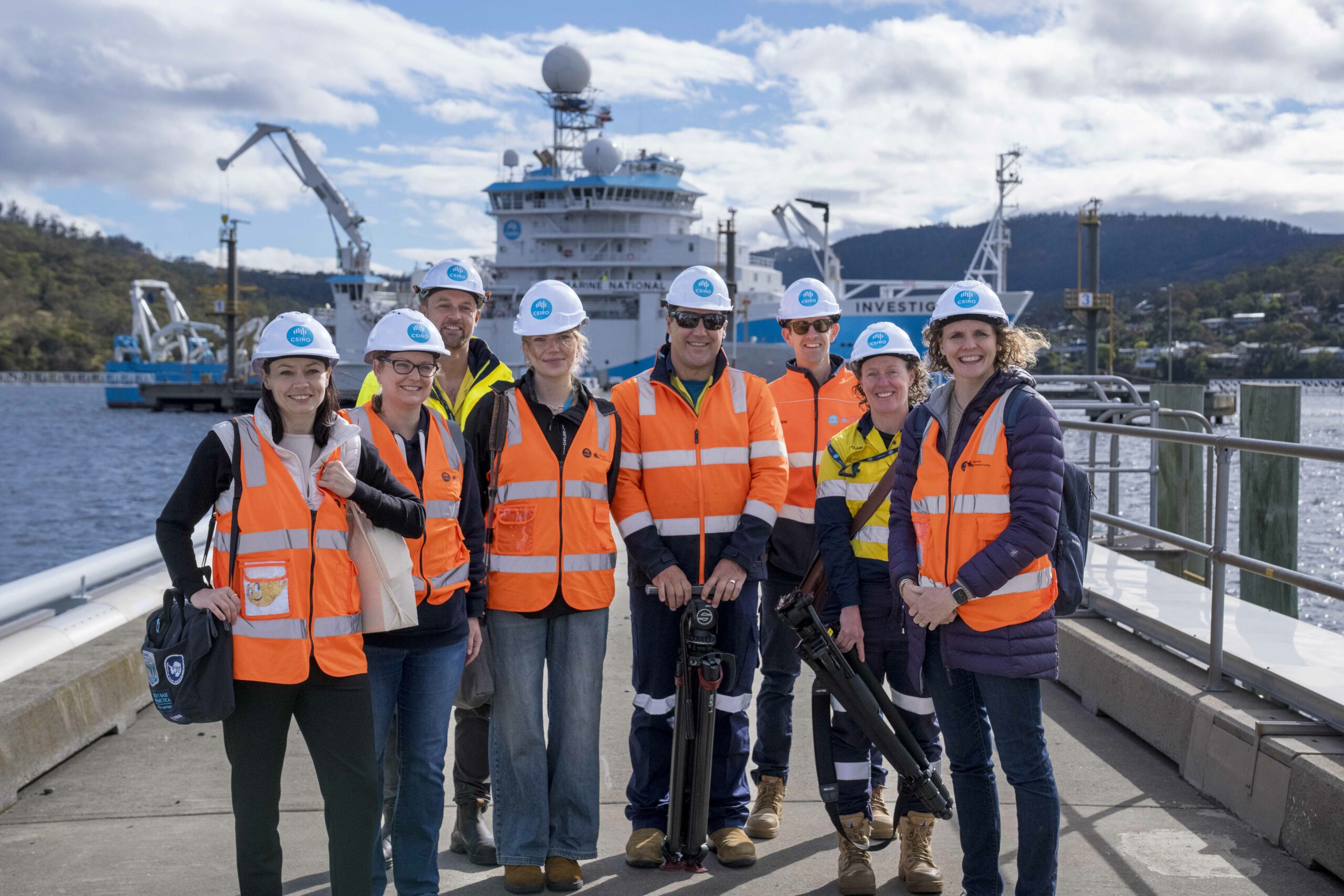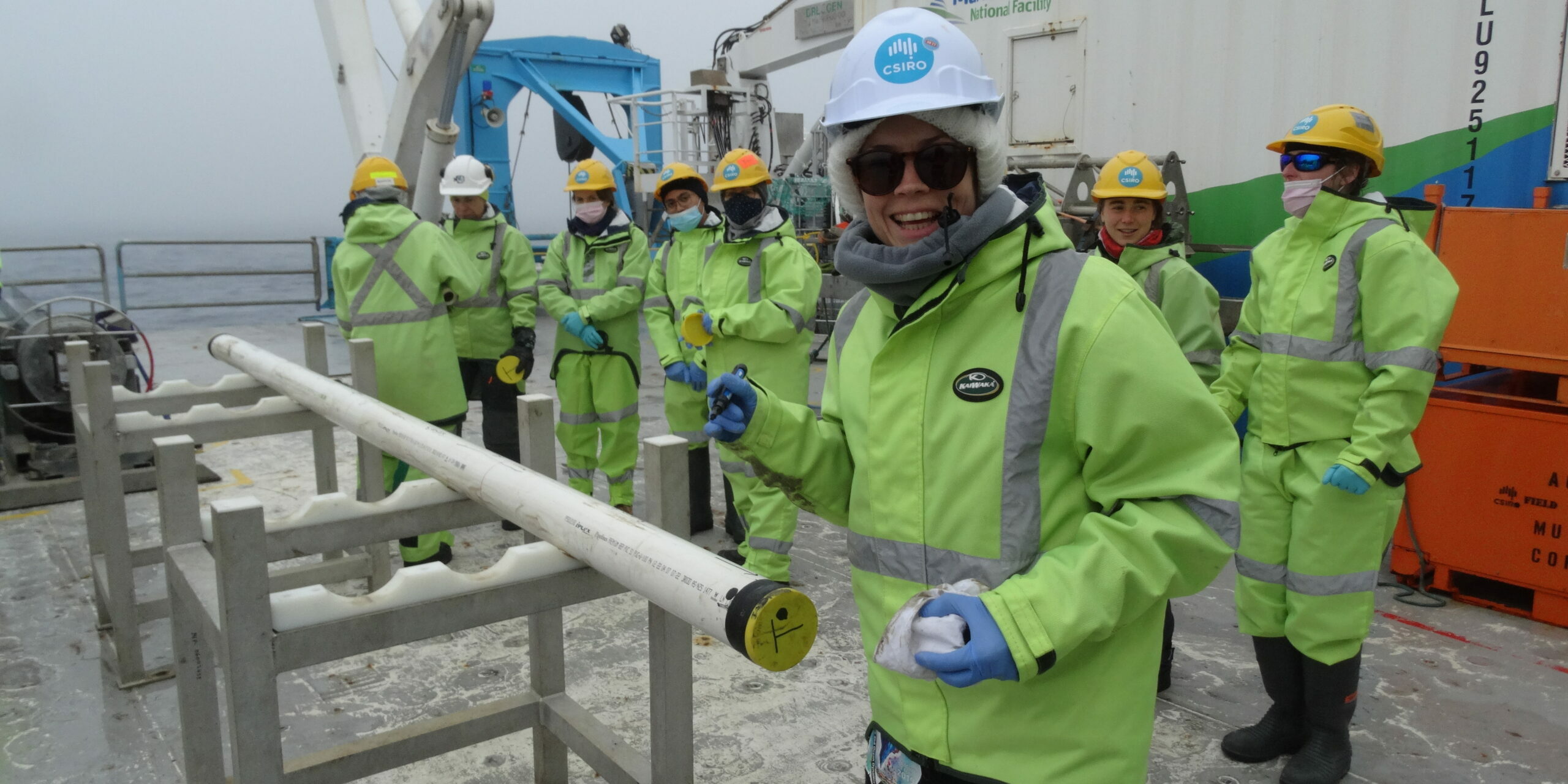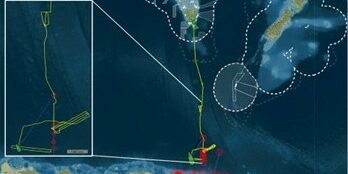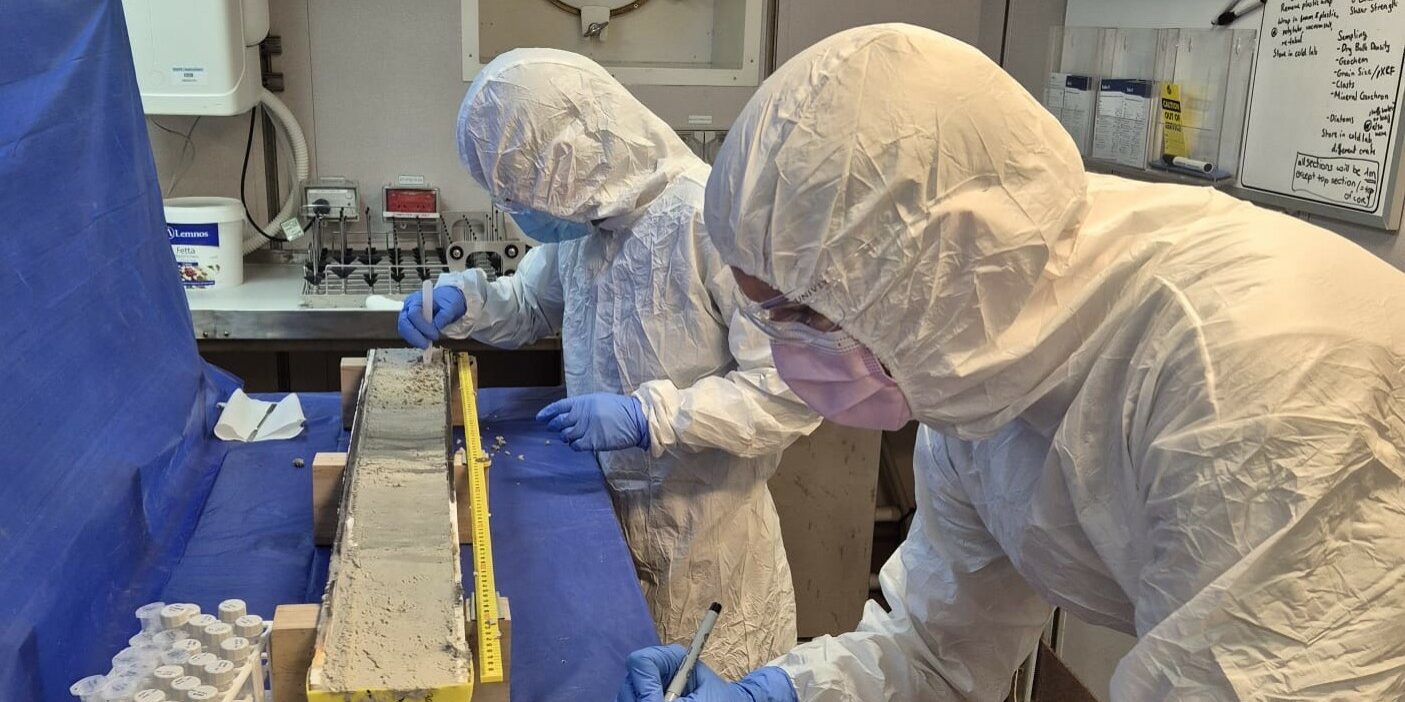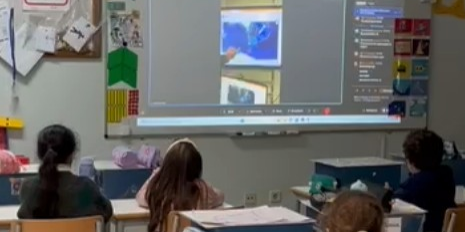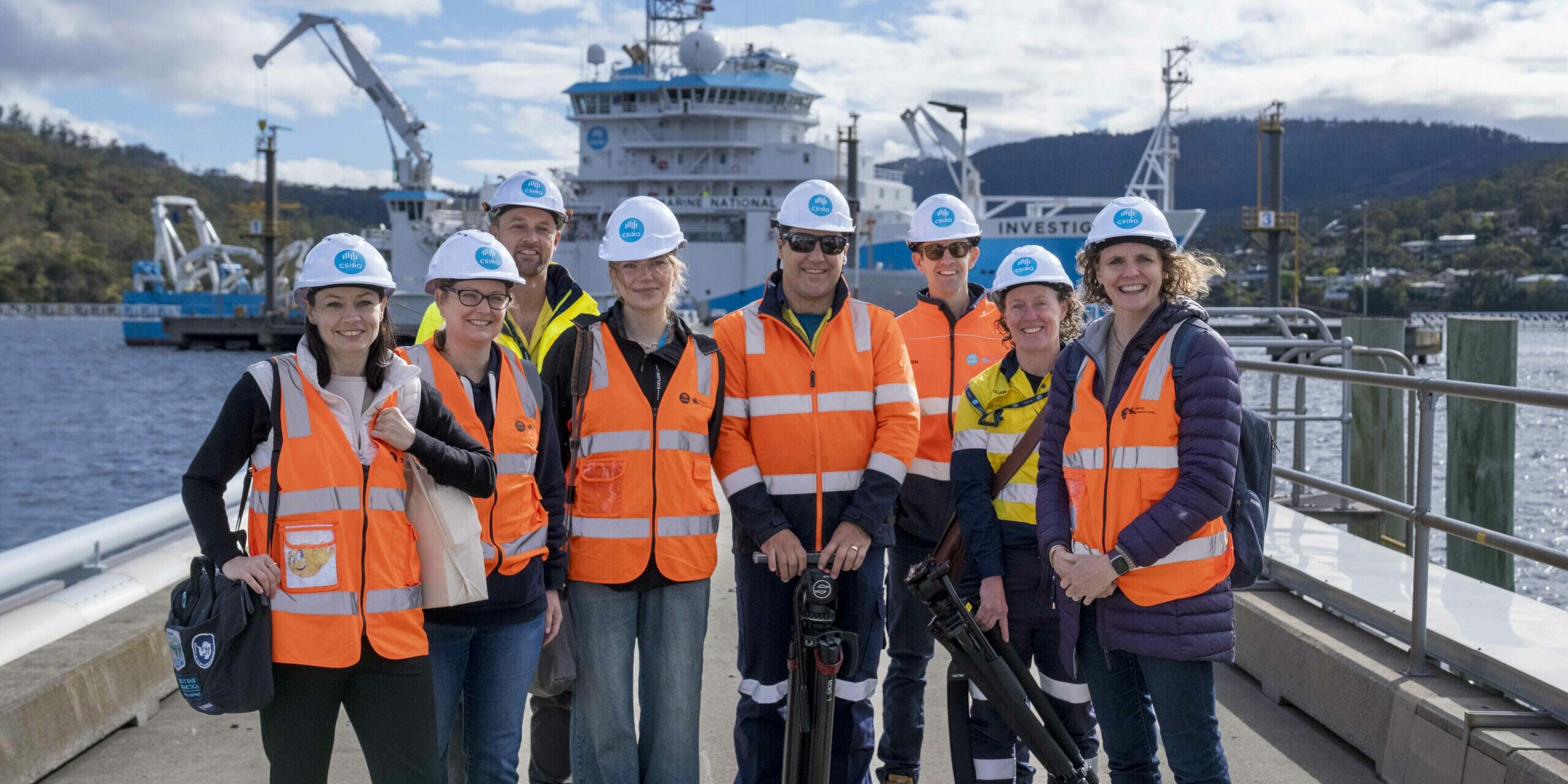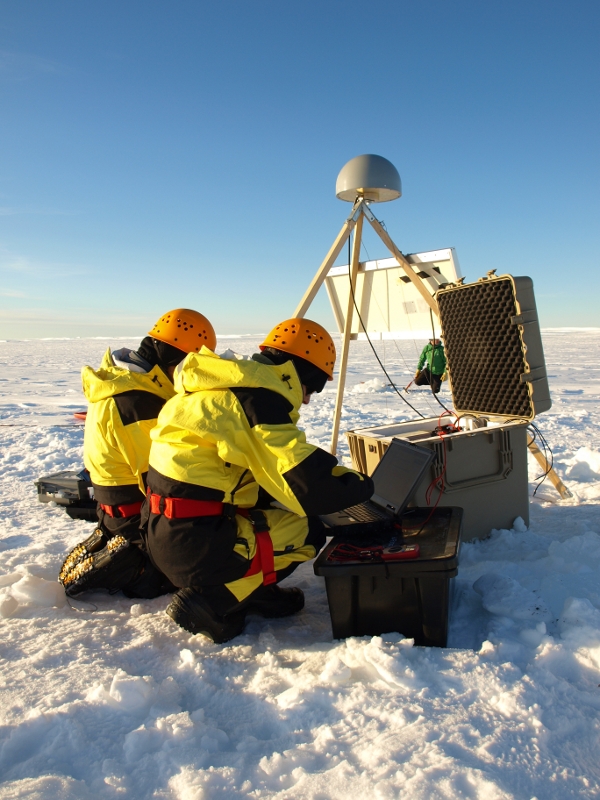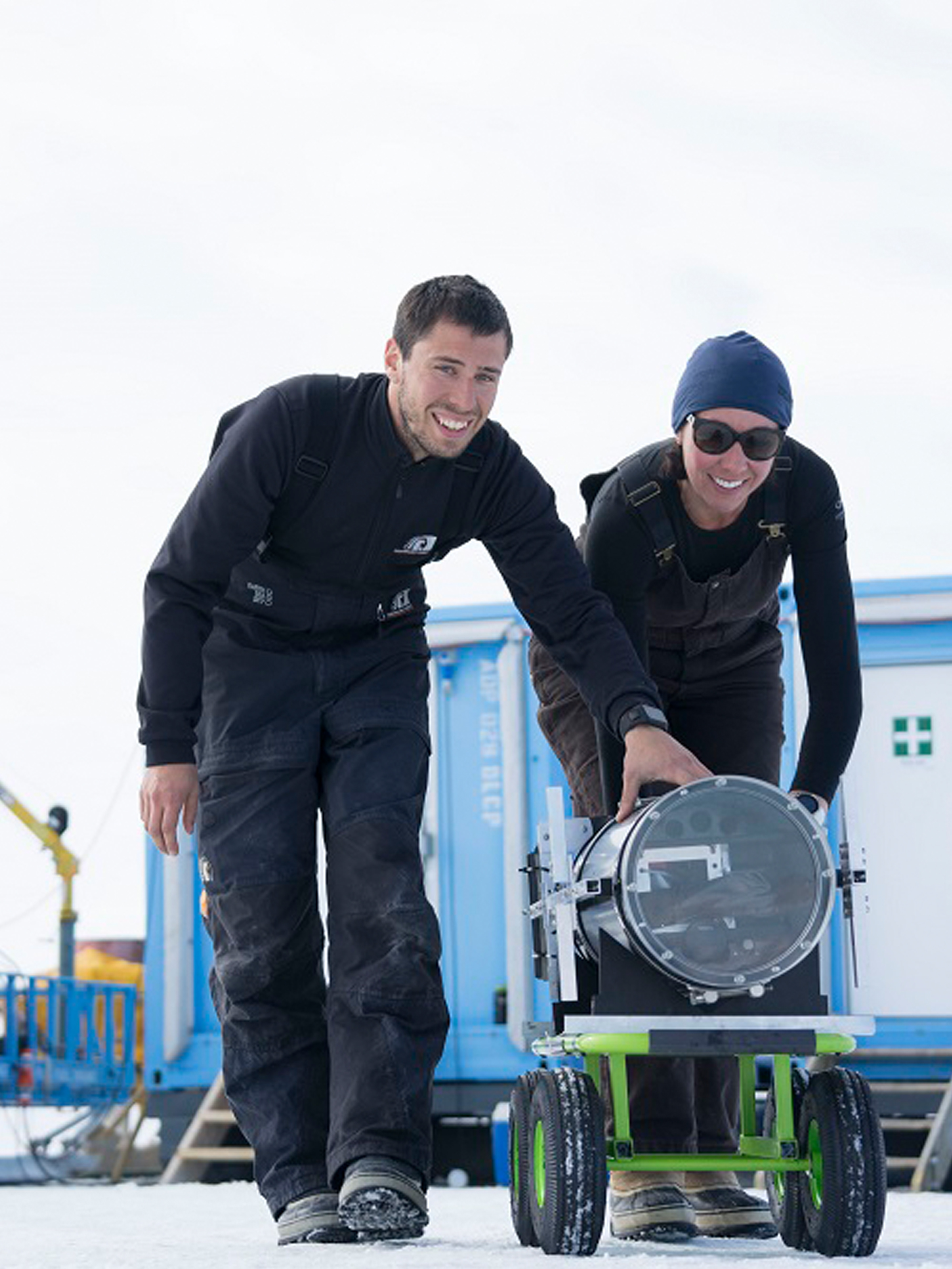
Our objective is to help communities prepare for climate risks emerging from East Antarctica and the Southern Ocean. We will do this by integrating knowledge of the region’s ocean, atmosphere, cryosphere, and ecosystems.
Annual
Report
2024
Denman
Marine
Voyage
The Denman Marine Voyage (DMV) will take more than 60 scientists to the Denman Glacier region for two months in late February, 2025
Science and technical teams will work closely with the ship’s crew across 24-hour shifts and use a range of methods - including bathymetry (sea floor mapping), rock and sediment sampling, sea-glider and mooring deployments, seal tagging and physical and chemical oceanography - to learn more about the factors influencing the glacier’s melt rate and its possible contribution to higher sea levels in future
COOKIES Blog #5 – The longest story ever pulled from the seafloor on the RV Investigator
The longest story ever pulled from the seafloor on the RV Investigator By Dr Linda Armbrecht, Australian Centre for Excellence in Antarctic Science/Institute for Marine and Antarctic Studies (University of Tasmania) and Joline Lalime, Sea2SchoolAU Sediment lying beneath the ocean […]
Read More about COOKIES Blog #5 – The longest story ever pulled from the seafloor on the RV InvestigatorCOOKIES Blog #4 – Listening to the deep: how sound maps the seabed
Listening to the deep: how sound maps the seabed By Laura De Santis, Senior Scientist (National Institute of Oceanography and Applied Geophysics OGS, Trieste, Italy) and Joline Lalime, Sea2SchoolAU The seafloor in the region surrounding the Antarctic continent is not […]
Read More about COOKIES Blog #4 – Listening to the deep: how sound maps the seabedCOOKIES Blog #3 – What’s the big deal about sedimentary ancient DNA?
What’s the big deal about sedimentary ancient DNA? By Ana Gomes, Research Fellow, NORCE/Bjerknes Centre for Climate Research and Joline Lalime, Sea2SchoolAU Most people don’t get excited about mud – but for us, there is nothing more satisfying than a […]
Read More about COOKIES Blog #3 – What’s the big deal about sedimentary ancient DNA?COOKIES Blog #2 – Voyage to Antarctica – without leaving the classroom
Voyage to Antarctica – without leaving the classroom By Joline Lalime, Sea2SchoolAU EB1JI do Parrinho School, Portugal (Image Credit: F. Rosario) How much do you or your students know about Australia’s research vessel, the CSIRO research vessel (RV) Investigator? Why […]
Read More about COOKIES Blog #2 – Voyage to Antarctica – without leaving the classroomCOOKIES Blog #1 – Cook Ice Shelf research: why it’s important
Cook Ice Shelf research: why it’s important By Dr Linda Armbrecht, Australian Centre for Excellence in Antarctic Science / Institute for Marine and Antarctic Studies (University of Tasmania) and Joline Lalime, Sea2SchoolAU The Cook Ice Shelf sits in a remote […]
Read More about COOKIES Blog #1 – Cook Ice Shelf research: why it’s importantCOOKIES Blog #5 – The longest story ever pulled from the seafloor on the RV Investigator
The longest story ever pulled from the seafloor on the RV Investigator By Dr Linda […]
Read More about COOKIES Blog #5 – The longest story ever pulled from the seafloor on the RV InvestigatorCOOKIES Blog #4 – Listening to the deep: how sound maps the seabed
Listening to the deep: how sound maps the seabed By Laura De Santis, Senior Scientist […]
Read More about COOKIES Blog #4 – Listening to the deep: how sound maps the seabedCOOKIES Blog #3 – What’s the big deal about sedimentary ancient DNA?
What’s the big deal about sedimentary ancient DNA? By Ana Gomes, Research Fellow, NORCE/Bjerknes Centre […]
Read More about COOKIES Blog #3 – What’s the big deal about sedimentary ancient DNA?COOKIES Blog #2 – Voyage to Antarctica – without leaving the classroom
Voyage to Antarctica – without leaving the classroom By Joline Lalime, Sea2SchoolAU EB1JI do Parrinho […]
Read More about COOKIES Blog #2 – Voyage to Antarctica – without leaving the classroomCOOKIES Blog #1 – Cook Ice Shelf research: why it’s important
Cook Ice Shelf research: why it’s important By Dr Linda Armbrecht, Australian Centre for Excellence […]
Read More about COOKIES Blog #1 – Cook Ice Shelf research: why it’s important
Denman
Terrestrial
Campaign
The Denman Terrestrial (land) Campaign runs from 2022 – 2025 and aims to increase our understanding of the Denman Glacier's history and stability through research projects staged from a deep field camp at Bunger Hills, about 450 kilometres from Casey research station
